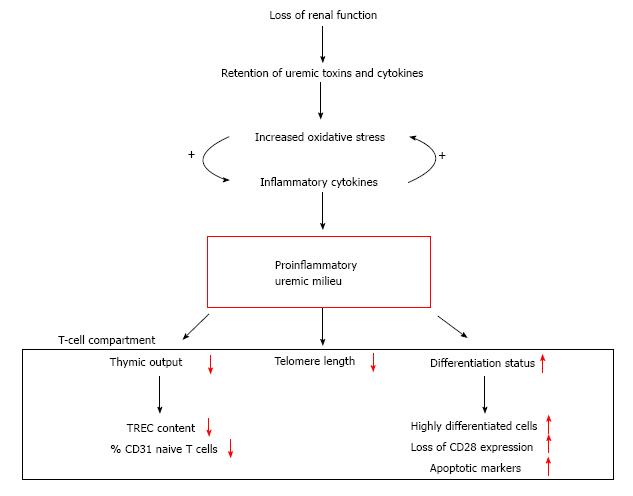Copyright
©2014 Baishideng Publishing Group Inc.
World J Nephrol. Nov 6, 2014; 3(4): 268-276
Published online Nov 6, 2014. doi: 10.5527/wjn.v3.i4.268
Published online Nov 6, 2014. doi: 10.5527/wjn.v3.i4.268
Figure 1 Schematic overview of the effects on the T-cell compartment caused by the uremia-induced pro-inflammatory milieu in end-stage renal disease patients.
Loss in renal function creates a pro-inflammatory milieu by the retention of uremic toxins and cytokines which increases oxidative stress and the production of inflammatory cytokines. This pro-inflammatory uremic milieu is associated with premature T-cell ageing, which results in defective T-cell immunity. End-stage renal disease (ESRD) patients have a lower thymic output of naïve T cells which can be measured by the TCR excision circles (TREC) content and the percentage of CD31-expressing naïve T cells. Furthermore, ESRD patients have an expanded population of highly differentiated T cells with a loss in CD28 expression and an increase in apoptotic markers. Moreover, these expanded T cells have a high proliferative history causing a decline in telomere length which can be measured by the relative telomere length analysis.
- Citation: Meijers RW, Betjes MG, Baan CC, Litjens NH. T-cell ageing in end-stage renal disease patients: Assessment and clinical relevance. World J Nephrol 2014; 3(4): 268-276
- URL: https://www.wjgnet.com/2220-6124/full/v3/i4/268.htm
- DOI: https://dx.doi.org/10.5527/wjn.v3.i4.268









